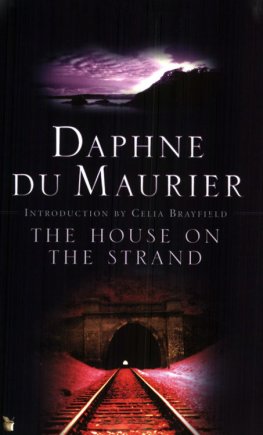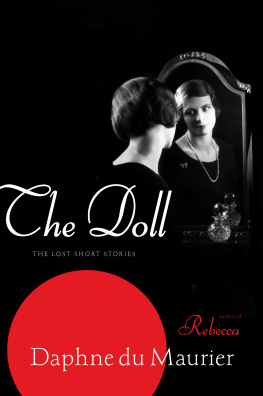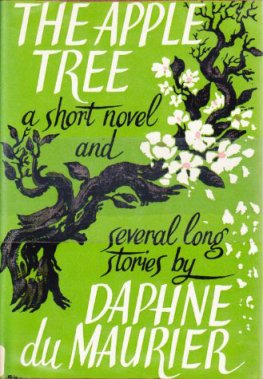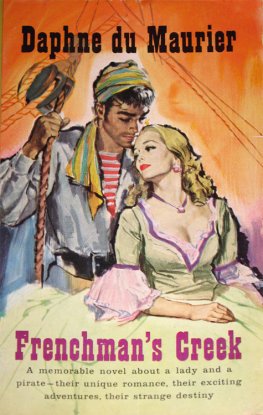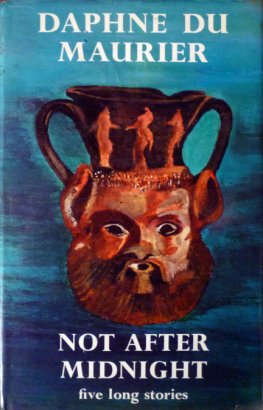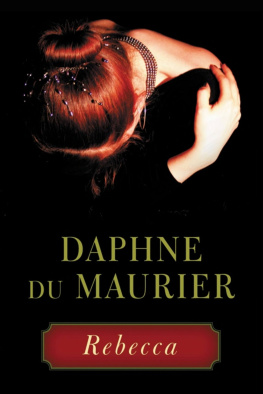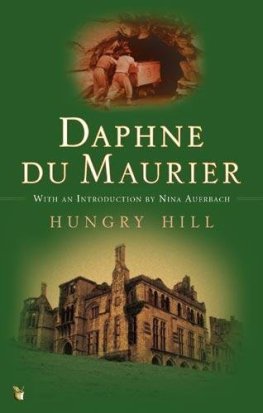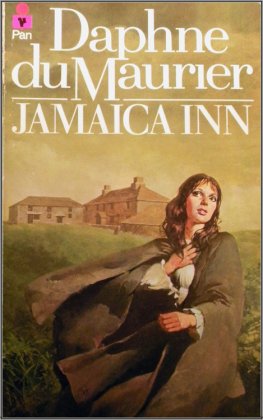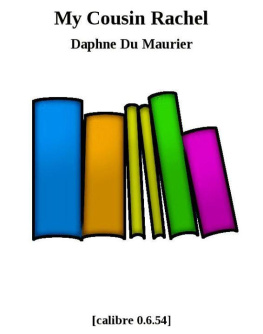Daphne Du Maurier
The House on the Strand
THE FIRST THING I noticed was the clarity of the air, and then the sharp green colour of the land. There was no softness anywhere. The distant hills did not blend into the sky but stood out like rocks, so close that I could almost touch them, their proximity giving me that shock of surprise and wonder which a child feels looking for the first time through a telescope. Nearer to me, too, each object had the same hard quality, the very grass turning to single blades, springing from a younger, harsher soil than the soil I knew. I had expected if I expected anything a transformation of another kind: a tranquil sense of well-being, the blurred intoxication of a dream, with everything about me misty, ill-defined; not this tremendous impact, a reality more vivid than anything hitherto experienced, sleeping or awake. Now every impression was heightened, every part of me singularly aware: eyesight, hearing, sense of smell, all had been in some way sharpened. All but the sense of touch: I could not feel the ground beneath my feet. Magnus had warned me of this. He had told me, "You won't be aware of your body coming into contact with inanimate objects. You will walk, stand, sit, brush against them, but will feel nothing. Don't worry. The very fact that you can move without sensation is half the wonder." This, of course, I had taken as a joke, one of the many bribes to goad me to experiment. Now he was proved right. I started to go forward, and the sensation was exhilarating, for I seemed to move without effort, feeling no contact with the ground. I was walking downhill towards the sea, across those fields of sharpedged silver grass that glistened under the sun, for the sky dull, a moment ago, to my ordinary eyes was now cloudless, a blazing ecstatic blue. I remembered that the tide had been out, the stretches of flat sand exposed, the row of bathing-huts, lined like dentures in an open mouth, forming a solid background to the golden expanse. Now they had gone, and with them the rows of houses fronting the road, the docks, all of Par chimneys, roof-tops, buildings and the sprawling tentacles of Saint Austell enveloping the countryside beyond the bay. There was nothing left but grass and scrub, and the high distant hills that seemed so near; while before me the sea rolled into the bay, covering the whole stretch of sand as if a tidal wave had swept over the land, swallowing it in one rapacious draught. To the north-west the cliffs came down to meet the sea, which, narrowing gradually, formed a wide estuary, the waters sweeping inward, following the curve of the land and so vanishing out of sight. When I came to the edge of the cliff and looked beneath me, where the road should be, the inn, the cafe, the alms-houses at the base of Polmear hill, I realised that the sea swept inland here as well, forming a creek that cut to the east, into the valley. Road and houses had gone, leaving only a dip between the land which rose on either side of the creek. Here the channel ran narrowly between banks of mud and sand, so that at low tide the water would surely seep away, leaving a marshy track that could be forded, if not on foot, at least by a horseman. I descended the hill and stood beside the creek, trying to pin-point in my mind the exact course of the road I knew, but already the old sense of orientation had gone: there was nothing to serve as guide except the ground itself, the valley and the hills.
The waters of the narrow channel rippled swift and blue over the sand, leaving on either side a frothy scum. Bubbles formed, expanded and vanished, and all the ordinary timeless waste came drifting with the tide, tresses of dark seaweed, feathers, twigs, the aftermath of some autumnal gale. I knew, in my own time, it was high summer, however dull and overcast the day, but all about me now was the clearer light of approaching winter, surely an early afternoon when the bright sun, already flaming in the west, would turn the sky dark crimson before the night clouds came.
The first live things swam into vision, gulls following the tide, small waders skimming the surface of the stream, while high on the opposite hill, sharply defined against the sky-line, a team of oxen ploughed their steady course. I closed my eyes, then opened them again. The team had vanished behind the rise of the field they worked, but the cloud of gulls, screaming in their wake, told me they had been a living presence, no figment of a dream.
I drank deep of the cold air, filling my lungs. Just to breathe was a joy never yet experienced for its own sake, having some quality of magic that I had not sensed before. Impossible to analyse thought, impossible to let my reason play on what I saw: in this new world of perception and delight there was nothing but intensity of feeling to serve as guide.
I might have stood for ever, entranced, content to hover between earth and sky, remote from any life I knew or cared to know; but then I turned my head and saw that I was not alone. The hooves had made no sound the pony must have travelled as I had done, across the fields and now that it trod upon the shingle the clink of stone against metal came to my ears with a sudden shock, and I could smell the warm horse-flesh, sweaty and strong.
Instinct made me back away, startled, for the rider came straight towards me, unconscious of my presence. He checked his pony at the water's edge and looked seaward, measuring the tide. Now, for the first time, I experienced not only excitement but fear as well, for this was no phantom figure but solid, real, the shape of foot in stirrup, hand on rein, all too perilously close for my comfort. I did not fear being ridden down: what jolted me to a sudden sense of panic was the encounter itself, this bridging of centuries between his time and mine. He shifted his gaze from the sea and looked straight at me. Surely he saw me, surely I read, in those deep-set eyes, a signal of recognition? He smiled, patted his pony's neck, then, with a swift kick of heel to flank, urged the beast across the ford, straight through the narrow channel, and so to the other side.
He had not seen me, he could not see me; he lived in another time. Why, then, the sudden shift in the saddle, the swing round to look back over his shoulder to where I stood? It was a challenge. Follow if you dare! compelling, strange. I measured the depth of water across the ford, and, though it had reached the pony's hocks, plunged after him, careless of a wetting, realising when I reached the other side that I had walked dry-shod, without sensation.
The horseman rode uphill, I following, the track he took muddied and very steep, swinging abruptly to the left when it traversed the higher ground. This, I remembered, pleased with the recognition, was the same course that the lane took today I had driven up it only that morning. Here resemblance ended, for no hedges banked the track as they did in my own time. Plough-lands lay to right and left, bare to the winds, and patches of scrubby moor with clumps of furze. We came abreast the team of oxen, and for the first time I could see the man who drove them, a small, hooded figure humped over a heavy wooden plough. He raised a hand in greeting to my horseman, shouted something, then plodded on, the gulls crying and wheeling above his head.
This greeting of one man to another seemed natural, and the sense of shock that had been part of me since I first saw the horseman at the ford gave place to wonder, then acceptance. I was reminded of my first journey as a child in France, travelling by sleeper overnight, throwing open the carriage window in the morning to see foreign fields fly by, villages, towns, figures labouring the land humped like the ploughman now, and thinking, with childish wonder, Are they alive like me, or just pretending?
My excuse for wonder was greater now than then. I looked at my horseman and his pony, and moved within touching, smelling distance. Both exhaled a pungency so strong that they seemed of the essence of life itself. The sweat-streaks on the pony's flanks, the shaggy mane, the fleck of froth at the bit's edge; and that broad knee in the stockinged leg, the leather jerkin laced across the tunic, that movement in the saddle, those hands upon the reins, that face itself lantern-jawed and ruddy, framed in black hair which fell below his ears this was reality, I the alien presence.

